Add your promotional text...

Tariq Faizi remains a key figure in Urdu literature, journalism, and cultural activism. His bold stance on political and cultural issues, his revival of serious Urdu literary discussions, and his commitment to fostering new talent have cemented his legacy. His influence continues through his platforms, events, and fearless journalism, ensuring that his impact on Urdu culture and media remains enduring.
TARIQ FAIZI
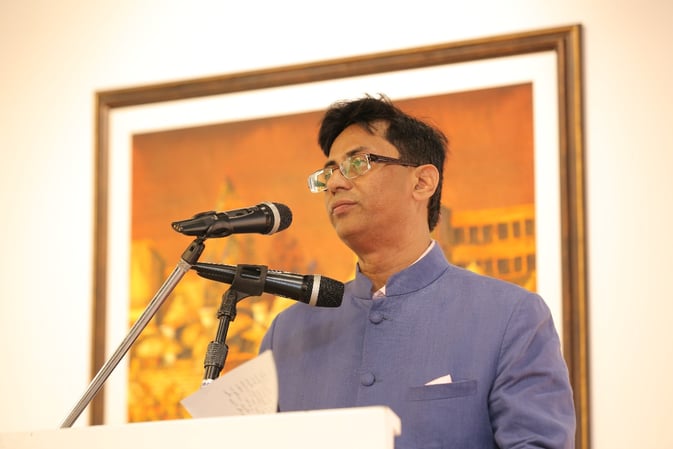

Tariq Faizi was born in Kanpur, India. From an early age, he was immersed in an environment rich in literature, classical music, and journalism. His father, Nasimuddin Siddiqui, was a former MLA from Kanpur and a prominent political figure in North India. Faizi grew up in the company of renowned poets such as Nashoor Wahidi, Irfan Siddiqui, Fana Nizami, and Zaib Ghouri, which deeply influenced his literary sensibilities.
Poetry & Literature Devotee
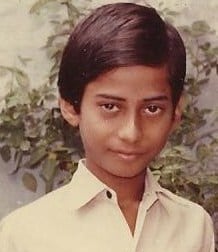

Tariq Faizi began his career in 1993 with All India Radio’s Urdu Service, marking the start of his impactful journey in Urdu media. Over the years, he collaborated with major media organizations including Doordarshan, Jain TV, Rashtriya Sahara, and Zee TV, where he eventually served as Media Director for a Zee TV project. In the print media space, Faizi held the roles of Editor and Publisher for Round Up Media Weekly and Jiddat Post. His journalistic work consistently addressed political, social, and cultural issues, and he organized conferences that brought together senior journalists and corporate leaders to discuss the future of Urdu journalism. Faizi was known for valuing independence and creative freedom, often choosing to work on his own terms rather than pursue conventional jobs. He also held a deep appreciation for raw talent and made it a mission to support and uplift gifted but unheard artists.
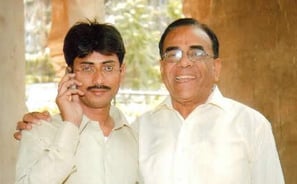

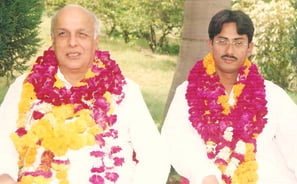

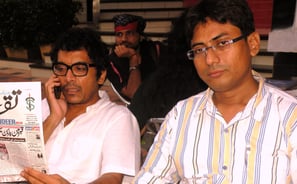

Early Life and Education
Career in Journalism
Faizi dedicated himself to promoting Urdu literature on an international scale. He founded the Urdu Press Club International and served as the General Secretary of the Federation for Global Culture, India. Through these platforms, he organized over 500 literary and cultural events, including international mushairas (poetry recitals), award functions, and symposiums. In 2000, he hosted a landmark conference titled "The Future of Urdu Journalism in the 21st Century," attended by prominent figures such as Kuldeep Nayar, Mahesh Bhatt, Mohsina Kidwai, and Arif Mohammad Khan. His events not only celebrated Urdu literature but also engaged with pressing socio-political issues and media ethics. Faizi was also known for organizing a unique mushaira featuring officers and bureaucrats under the banner of the Federation for Global Culture.
Contributions to Urdu Literature and Culture
In 2019, Tariq Faizi migrated to Dubai with a clear motive to expand the global reach of Urdu literature. Soon after his arrival, he established the first international Urdu literary society in Dubai, which quickly grew into a vibrant hub for Urdu poets, journalists, and cultural scholars. Staying true to his mission, Faizi organized literary events in cities like London, Malaysia, Germany, Azerbaijan, and Bahrain. His consistent efforts significantly strengthened the presence of Urdu on the global stage, encouraging cross-cultural appreciation beyond South Asia. Notably, in 2011, Faizi had already marked a milestone by organizing his first international mushaira in Dubai. Since then, he has continued to host major literary gatherings, becoming a prominent figure in the world of Urdu literature.
Migration to Dubai and Global Influence
Apart from literature and journalism, Tariq Faizi played an active role in film criticism and media analysis. He attended screenings and special events, contributing to discussions on the societal impact of cinema. Two significant films associated with his work include Journey of a Thousand Miles: Peacekeepers, directed by Sharmeen Obaid-Chinoy and produced by Irfan Izhar, which won the Best Humanitarian Award at the RiverRun International Film Festival and was screened at the United Nations; and Dhoka, directed by Pooja Bhatt, which explored the causes of terrorism. The latter faced censorship and controversy, prompting Faizi to become a vocal advocate for the film’s themes.
Role in Film and Media Analysis
Association with Public Figures
Throughout his career, Faizi maintained connections with key politicians, journalists, and intellectuals, including Hamid Ansari (Former Vice President of India), Mahesh Bhatt (filmmaker), Javed Akhtar (poet and lyricist), and Arundhati Roy (author). He also worked closely with bureaucrats, scientists, and media experts, strengthening the presence of Urdu in diverse intellectual circles. Faizi invited top political figures to his events, including two former Prime Ministers (P.V. Narasimha Rao and V.P. Singh), as well as several Governors, Chief Ministers, and Ministers.
Legacy and Influence
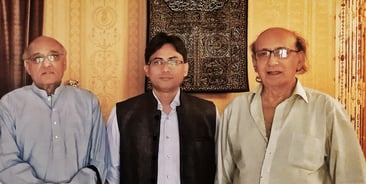

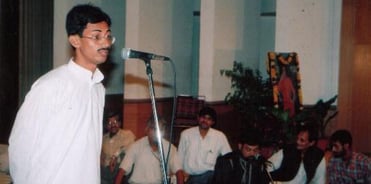

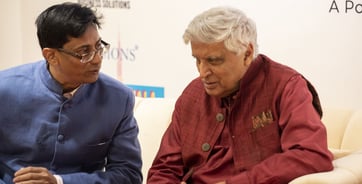

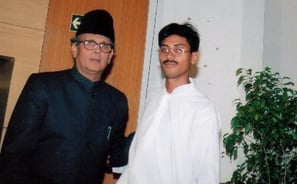

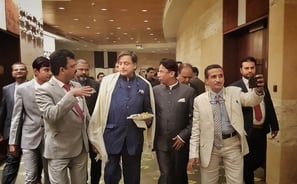

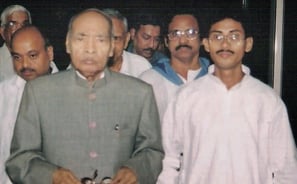


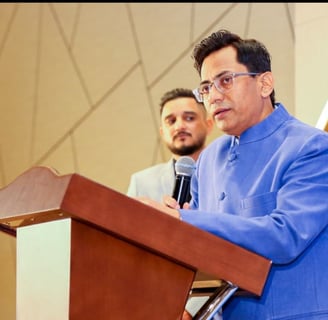
This literary environment played a crucial role in shaping his worldview. Faizi’s educational journey began at Westcott School in Kanpur, and he later attended the A.J.K. Mass Communication Research Centre at Jamia Millia Islamia, Delhi, where he pursued media studies.
Tariq Faizi
Explore the creative journey of Tariq Faizi.
Poetry
Portfolio
contact@tariqfaizi.com
+971 54 363 6391
© 2025. All rights reserved.